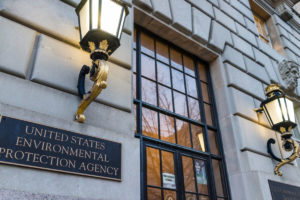 The Environmental Protection Agency held a virtual hearing Tuesday on the recently proposed rule for a permanent waiver to allow eight states to sell E15 year round. For ethanol stakeholders, comments boiled down to one message: EPA took too long to respond to the governors’ request and must do something immediately to implement a waiver before summer.
The Environmental Protection Agency held a virtual hearing Tuesday on the recently proposed rule for a permanent waiver to allow eight states to sell E15 year round. For ethanol stakeholders, comments boiled down to one message: EPA took too long to respond to the governors’ request and must do something immediately to implement a waiver before summer.
Renewable Fuels Association President and CEO Geoff Cooper reminded the agency that it had a statutory duty to approve and implement the governors’ petition within 90 days—which would have been no later than July 27, 2022. Instead, the proposal was issued just three weeks ago, and EPA now proposes deferring implementation until 2024.
“If there truly is a problem with implementing the governors’ petition this summer, it is a problem of the Administration’s own making,” Cooper said. “EPA’s seven-month delay in taking any action at all on the petition has put the marketplace in a real jam—and it should be EPA’s responsibility to get us out of that jam. If the Agency truly believes it cannot implement this petition in time for the summer of 2023, then it should consider using other regulatory authorities to ensure consumers have uninterrupted access to lower-cost, lower-carbon E15.”
American Coalition for Ethanol (ACE) Chief Marketing Officer (CMO) Ron Lamberty testified that while EPA justifies delaying the effective date of the rule to 2024 by saying it had to thoroughly consider challenges to every step of the supply chain from refinery to delivery, “EPA conspicuously gives zero consideration to the economic impact their delay will have on E15 retailers and the consumers who use the fuel.”
“Retailers who have offered E15 and consumers who have purchased E15 in 2020, 2021, 2022, and who will be able to use it in 2024, will now have to quit selling and using E15 for three and a half months because of EPA foot-dragging,” Lamberty said. “More importantly, the retailers and consumers using E15 do so because it costs 5 to 15 cents less than E10 and 40 to 75 cents less than non-ethanol gasolines. Now they’ll have to spend more for fuel during the busiest time of the year because EPA didn’t get its work done on time.”

